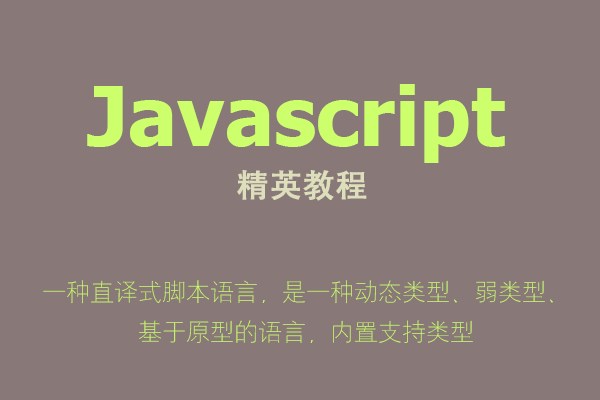# 前言 {#前言}
在使用MyBatis或者MyBatis-Plus作为ORM框架的时候,会发现默认的日志输出是下面这样的:

在参数少并且SQL简单的情况下,这样的SQL我们能通过手动去替换占位符,来获取到真正执行的SQL。但是如果是比较复杂的SQL,或者查询参数比较多的话,一个个替换就比较费时费力了。
# MyBatis Plugin {#mybatis-plugin}
于是我们就可以使用MyBatis对外暴露出的Interceptor接口,来手动实现一个能优雅地打印日志的插件。平常像用的比较多的PageHelper,就是一个MyBatis的插件,实现原理和我们这次要做的功能十分相似。
最终实现后的效果是下面这样的:

# MyBatis 插件的几个重点模块 {#mybatis-插件的几个重点模块}
@Intercepts 注解:
这是 MyBatis 提供的一个注解,用于定义一个拦截器。一个拦截器可以拦截一个或多个方法。
@Signature 注解:
这是 @Intercepts 注解的子注解,用于指定要拦截的目标方法。
@Signature 注解的参数分别是:
type:指定要拦截的接口类型。
method:指定要拦截的方法名。
args:指定要拦截的方法的参数类型列表。
todo: 这一章其他内容之后补上(Intercepts注解、MyBatis插件开发过程中的各个对象)
# 实现一个优雅打日志的功能 {#实现一个优雅打日志的功能}
首先编写一个Interceptor的实现类,具体代码如下,所有的注释都放在代码上了:
其中类上的Intercepts注解含义为:在 Executor 的 query、update 方法执行前后进行自定义的处理,其中Executor 是最底层的执行器,负责与数据库进行通信。它的职责包括创建和缓存 Statement 对象、执行 SQL 语句、处理结果集等。
import lombok.extern.slf4j.Slf4j;
import org.apache.ibatis.cache.CacheKey;
import org.apache.ibatis.executor.Executor;
import org.apache.ibatis.mapping.BoundSql;
import org.apache.ibatis.mapping.MappedStatement;
import org.apache.ibatis.mapping.ParameterMapping;
import org.apache.ibatis.plugin.*;
import org.apache.ibatis.reflection.MetaObject;
import org.apache.ibatis.session.Configuration;
import org.apache.ibatis.session.ResultHandler;
import org.apache.ibatis.session.RowBounds;
import org.apache.ibatis.type.TypeHandlerRegistry;
import org.springframework.util.ObjectUtils;
import java.text.DateFormat;
import java.util.Date;
import java.util.List;
import java.util.Locale;
import java.util.Properties;
import java.util.regex.Matcher;
@Intercepts({
@Signature(type = Executor.class, method = "query", args = {MappedStatement.class, Object.class, RowBounds.class, ResultHandler.class}),
@Signature(type = Executor.class, method = "query", args = {MappedStatement.class, Object.class, RowBounds.class, ResultHandler.class, CacheKey.class, BoundSql.class}),
@Signature(type = Executor.class, method = "update", args = {MappedStatement.class, Object.class})
})
@Slf4j
public class SqlInterceptor implements Interceptor {
@Override
public Object intercept(Invocation invocation) throws Throwable {
// 计算这一次SQL执行钱后的时间,统计一下执行耗时
long startTime = System.currentTimeMillis();
Object proceed = invocation.proceed();
long endTime = System.currentTimeMillis();
String printSql = null;
try {
// 通过generateSql方法拿到最终生成的SQL
printSql = generateSql(invocation);
}catch (Exception exception){
log.error("获取sql异常",exception);
}finally {
// 拼接日志打印过程
long costTime = endTime - startTime;
log.info("\n 执行SQL耗时:{}ms \n 执行SQL:{}",costTime,printSql);
}
return proceed;
}
private static String generateSql(Invocation invocation){
// 获取到BoundSql以及Configuration对象
// BoundSql 对象存储了一条具体的 SQL 语句及其相关参数信息。
// Configuration 对象保存了 MyBatis 框架运行时所有的配置信息
MappedStatement statement = (MappedStatement) invocation.getArgs()[0];
Object parameter = null;
if (invocation.getArgs().length>1){
parameter = invocation.getArgs()[1];
}
Configuration configuration = statement.getConfiguration();
BoundSql boundSql = statement.getBoundSql(parameter);
// 获取参数对象
Object parameterObject = boundSql.getParameterObject();
// 获取参数映射
List<ParameterMapping> params = boundSql.getParameterMappings();
// 获取到执行的SQL
String sql = boundSql.getSql();
// SQL中多个空格使用一个空格代替
sql = sql.replaceAll("[\\s]+", " ");
if (!ObjectUtils.isEmpty(params) && !ObjectUtils.isEmpty(parameterObject)){
// TypeHandlerRegistry 是 MyBatis 用来管理 TypeHandler 的注册器。TypeHandler 用于在 Java 类型和 JDBC 类型之间进行转换
TypeHandlerRegistry typeHandlerRegistry = configuration.getTypeHandlerRegistry();
// 如果参数对象的类型有对应的 TypeHandler,则使用 TypeHandler 进行处理
if (typeHandlerRegistry.hasTypeHandler(parameterObject.getClass())){
sql = sql.replaceFirst("\\?", Matcher.quoteReplacement(getParameterValue(parameterObject)));
}else {
// 否则,逐个处理参数映射
for (ParameterMapping param : params) {
// 获取参数的属性名
String propertyName = param.getProperty();
MetaObject metaObject = configuration.newMetaObject(parameterObject);
// 检查对象中是否存在该属性的 getter 方法,如果存在就取出来进行替换
if (metaObject.hasGetter(propertyName)){
Object obj = metaObject.getValue(propertyName);
sql = sql.replaceFirst("\\?", Matcher.quoteReplacement(getParameterValue(obj)));
// 检查 BoundSql 对象中是否存在附加参数。附加参数可能是在动态 SQL 处理中生成的,有的话就进行替换
}else if (boundSql.hasAdditionalParameter(propertyName)){
Object obj = boundSql.getAdditionalParameter(propertyName);
sql = sql.replaceFirst("\\?", Matcher.quoteReplacement(getParameterValue(obj)));
}else {
// 如果都没有,说明SQL匹配不上,带上"缺失"方便找问题
sql = sql.replaceFirst("\\?", "缺失");
}
}
}
}
return sql;
}
private static String getParameterValue(Object object) {
String value = "";
if (object instanceof String){
value = "'" + object.toString() + "'";
}else if (object instanceof Date){
DateFormat format = DateFormat.getDateTimeInstance(DateFormat.DEFAULT, DateFormat.DEFAULT, Locale.CHINA);
value = "'" + format.format((Date) object) + "'";
} else if (!ObjectUtils.isEmpty(object)) {
value = object.toString();
}
return value;
}
@Override
public Object plugin(Object target) {
return Plugin.wrap(target, this);
}
@Override
public void setProperties(Properties properties) {
// 可以通过properties配置插件参数
}
}
接着编写一个MyBatis的配置类,将这个插件注册进去
import com.baomidou.mybatisplus.autoconfigure.ConfigurationCustomizer;
import com.mybatisflex.test.Interceptor.SqlInterceptor;
import org.springframework.context.annotation.Bean;
import org.springframework.context.annotation.Configuration;
@Configuration
public class MyBatisConfig {
@Bean
public ConfigurationCustomizer mybatisConfigurationCustomizer() {
return configuration -> {
configuration.addInterceptor(new SqlInterceptor());
};
}
}
 51工具盒子
51工具盒子




